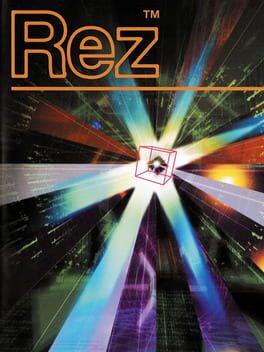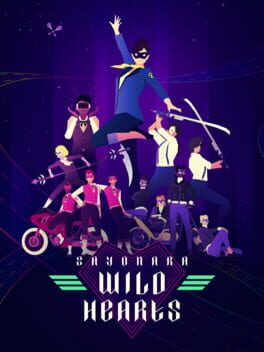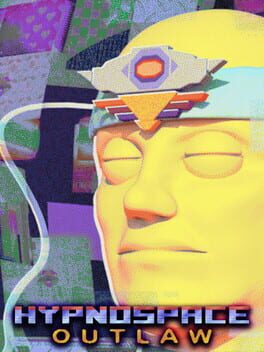CheddarFunk
Bio
Screenwriter and film professor with a love for exploring all sorts of vide games. I also stream all sorts of video games! Check me out at twitch.tv/cheddarfunk!
Screenwriter and film professor with a love for exploring all sorts of vide games. I also stream all sorts of video games! Check me out at twitch.tv/cheddarfunk!
Badges

Noticed
Gained 3+ followers

Liked
Gained 10+ total review likes

2 Years of Service
Being part of the Backloggd community for 2 years
Favorite Games
009
Total Games Played
000
Played in 2024
000
Games Backloggd
Recently Played See More
Recently Reviewed See More
Chants of Sennaar is a fascinating game that saves its most indicting themes for moments of individual discover. Rather than pompously expositing revelation, the game trusts in its puzzles - and the players dedication to unveiling the many languages of the game's world - to lay before us the consequence of language. Its central thesis, with others orbiting around it, is that language is a social construct.
While that feels underwhelming, the game's exhaustive exploration into what this could mean motivates both the aforementioned puzzles and the game's world design. It is as if the languages, each one prescribed to one of the five castes, reinforce the hierarchical linearity of the Tower of Babel world. As an example, the race of the devotees call themselves as such. However, the caste above them, the warriors, does not have a word for devotees. Instead, they call them the impure. Nothing could be more damning than linguistic superiority, entrapping a whole group of people by deeming their faith as a dross.
Additionally, the warriors' task themselves with protecting who the call the chosen ones, the caste above them. The chose ones call themselves bards, but such an appellation amplifies their fabricated worthiness. Indeed, the chosen ones seem to be busy contemplating their own beauty. Even more so, they don't even have a word for the devotees; the caste is so far below them it is rendered unimportant, non-existent.
All of this is determinable by merely playing the game - it's discovery-centered interactivity fueled by the tabula rasa of the nameless protagonist. As an outsider of unknown origin, they/you have the benefit in contextualizing the segregating stratification as you make like a chameleon and effortlessly move between castes.
And this Babel-like tower is impressive, with imposing architecture that resonates with historical prominence. It's tall, too, which may be a trivial observation, but gives it a narrative and thematic heft as you approach the climax - the importance of what you've been doing all along becomes clear at the moment you can theoretically look down on all the areas you traversed.
None of the puzzles are overly difficult, but any struggles are based on how esoteric the setup is. And it is not necessarily a bad thing, though I did find myself missing out on clues simply because the visual cues that hint at a solution were arguably too inconspicuous. No matter, the fact that you can progress through this game with a combination of deductive skills and observant intuition is one of the game's highlights. Much like how The Return of the Obra Dinn provided a system of rewarding educational guesses, Sennaar does the same those endorphin-producing moments of accomplishment form a kinship with the Lucas Pope game.
Ultimately, the game makes a great case for the ways in which we actively set boundaries around ourselves through a fear and ignorance. Language is as solid as the limestone walls the reach up towards the sky. It simulates a variation of Nietzschean thought about the proliferation of Christianity as a faith based on the oppressed while also commenting on unsustainable god-complexes of the entitled. Chants of Sennaar offers a compelling suggestion to pierce through traditional social partitioning, where languages aren't compartmentalized but fused and conflated to form a more integral experience.
While that feels underwhelming, the game's exhaustive exploration into what this could mean motivates both the aforementioned puzzles and the game's world design. It is as if the languages, each one prescribed to one of the five castes, reinforce the hierarchical linearity of the Tower of Babel world. As an example, the race of the devotees call themselves as such. However, the caste above them, the warriors, does not have a word for devotees. Instead, they call them the impure. Nothing could be more damning than linguistic superiority, entrapping a whole group of people by deeming their faith as a dross.
Additionally, the warriors' task themselves with protecting who the call the chosen ones, the caste above them. The chose ones call themselves bards, but such an appellation amplifies their fabricated worthiness. Indeed, the chosen ones seem to be busy contemplating their own beauty. Even more so, they don't even have a word for the devotees; the caste is so far below them it is rendered unimportant, non-existent.
All of this is determinable by merely playing the game - it's discovery-centered interactivity fueled by the tabula rasa of the nameless protagonist. As an outsider of unknown origin, they/you have the benefit in contextualizing the segregating stratification as you make like a chameleon and effortlessly move between castes.
And this Babel-like tower is impressive, with imposing architecture that resonates with historical prominence. It's tall, too, which may be a trivial observation, but gives it a narrative and thematic heft as you approach the climax - the importance of what you've been doing all along becomes clear at the moment you can theoretically look down on all the areas you traversed.
None of the puzzles are overly difficult, but any struggles are based on how esoteric the setup is. And it is not necessarily a bad thing, though I did find myself missing out on clues simply because the visual cues that hint at a solution were arguably too inconspicuous. No matter, the fact that you can progress through this game with a combination of deductive skills and observant intuition is one of the game's highlights. Much like how The Return of the Obra Dinn provided a system of rewarding educational guesses, Sennaar does the same those endorphin-producing moments of accomplishment form a kinship with the Lucas Pope game.
Ultimately, the game makes a great case for the ways in which we actively set boundaries around ourselves through a fear and ignorance. Language is as solid as the limestone walls the reach up towards the sky. It simulates a variation of Nietzschean thought about the proliferation of Christianity as a faith based on the oppressed while also commenting on unsustainable god-complexes of the entitled. Chants of Sennaar offers a compelling suggestion to pierce through traditional social partitioning, where languages aren't compartmentalized but fused and conflated to form a more integral experience.
Embodying the noir-ish surreality introduced so intriguingly in the Max Payne games of the 2000s, El Paso, Elsewhere leans further into the fantastical as you take control of James Savage, a man essentially on a death drive to try and stop his ex-girlfriend from obliterating humanity - she is a vampire, by the way.
While it's narrative is rich in complexity, fueled by the straining toxicity of the two former lovers as they navigate their own identities, the game design is a bit simpler. It's less focused on a gradual development of environments as you descend into the dimensionless void since the they repeat, remix with each other, and altogether reflect a cyclical trajectory of angst, sorrow, and longing. It makes sense, but one of the many issues with this game is in its repetition in its world building. It's almost more similar to a game like Robotron - the same level over and over but populated by more and more enemies - than Max Payne.
The gameplay, at its core, is fun - its action aggressive, tinged with traces of survival and psychological horror. Fighting your way through armies of vampires, werewolves, and other creatures provides a rush in part because of its Max Payne-influenced bullet time. However, I wasn't expecting it to be predictably linear, the intractability with the world and the enemy variants limited. It feels that the amplified melodrama of not just the story and its narration but in the aesthetics (the big, bold names of the levels as you start, for instance) provide a veneer to a design that could have been a bit more ambitious, matching its narrative musculature.
And that narration is delightfully discomforting. Savage, voiced by the game's creative lead Xalavier Nelson Jr., reeks of an elusive regret, coaxed by a decomposing sense of self-worth. Paralleling the dizzying world also falling apart, it's almost as if the narration describes a deep dive into Savage's own soul. Even if the arch-nemesis is trying to destroy humanity, it's still someone he used to love. Compounded with the cinematic flair of cut scenes and other stylistic sensibilities, El Paso holds itself together firmly with tonal viciousness. You continue through this adventure no matter your inclination towards its repetition because there is a confidence brimming from the developers that this story is worth exploring. And it is.
While it's narrative is rich in complexity, fueled by the straining toxicity of the two former lovers as they navigate their own identities, the game design is a bit simpler. It's less focused on a gradual development of environments as you descend into the dimensionless void since the they repeat, remix with each other, and altogether reflect a cyclical trajectory of angst, sorrow, and longing. It makes sense, but one of the many issues with this game is in its repetition in its world building. It's almost more similar to a game like Robotron - the same level over and over but populated by more and more enemies - than Max Payne.
The gameplay, at its core, is fun - its action aggressive, tinged with traces of survival and psychological horror. Fighting your way through armies of vampires, werewolves, and other creatures provides a rush in part because of its Max Payne-influenced bullet time. However, I wasn't expecting it to be predictably linear, the intractability with the world and the enemy variants limited. It feels that the amplified melodrama of not just the story and its narration but in the aesthetics (the big, bold names of the levels as you start, for instance) provide a veneer to a design that could have been a bit more ambitious, matching its narrative musculature.
And that narration is delightfully discomforting. Savage, voiced by the game's creative lead Xalavier Nelson Jr., reeks of an elusive regret, coaxed by a decomposing sense of self-worth. Paralleling the dizzying world also falling apart, it's almost as if the narration describes a deep dive into Savage's own soul. Even if the arch-nemesis is trying to destroy humanity, it's still someone he used to love. Compounded with the cinematic flair of cut scenes and other stylistic sensibilities, El Paso holds itself together firmly with tonal viciousness. You continue through this adventure no matter your inclination towards its repetition because there is a confidence brimming from the developers that this story is worth exploring. And it is.
This review contains spoilers
One of those excitingly singular experiences that reaffirms why video games, to me, are crucial and brilliant, Hypnospace Outlaw sets out to recreate a nostalgia-glazed and surprisingly brittle moment of our lives when the confrontation with the internet caused a giddy maelstrom of emotions. Underneath is aesthetic charm, leaning in on that pre-millenium weirdness that defined a lot of the social landscape of the internet before social media standardized - and perhaps corrupted - the practice.
What is essentially a point-and-click adventure. Hypnospace Outlaw is not a game whose world is made up of castles or fantasy lands, no dystopic urban landscapes or haunted houses. What makes up this world are computer windows, emails, download lists, text files, and screensavers. One could misinterpret it for being a text-based adventure given all the text you have to read on webpages and such, but this is not the case since text is only one of the characteristics inherent to the historical world rejuvenated by this game. Your actions are not strictly text-based but, rather, dictated by how one must navigate the inner workings of a computer and internet browser. such a unique scaffolding for the game design to flourish means that the puzzles have atypical solutions. within the point-and-click genre.
The game's sensibilities inhabit this uncanny but fascinating area between our naivety, excitement, and fear of knowing the internet was now going to be a huge part of our lives. The characters whose webpages we visit are in this aching transformative period trying to decide best how to project their lives and their thoughts into the coded structure of online life. You have elderly, conservative-leaning individuals who seem to not be able to organize their page, unintentionally spamming pictures or poorly formatting text; most of ther life was not preparing them for the moment they could translate their many years of lived experiences onto a website. But then you have younger people, clearly savvier at navigating the tools to create individual experiences, already aware that their webpage is a propagation of their image. Insecurity squirms just underneath the purposefully toxic masculinity expressed by some of the teen boys as a means to fake their superiority. We see how social pressures, and even unseen factors, can contribute to the desire for people to become different online, whether for good or not.
And while the obvious satirical edge this game has in representing the many citizens of this frontier cyberspace, laughing with us at an obliviousness we take for granted, the story gradually reveals itself to be much more concerned about the melancholy earned in the name of a blind faith of online utopia. Your role as a content moderator allows glimpses of not just an uncanny existence in Hypnospace, but a potentially dangerous one. That although these characters, and us at that time, look at the internet with cautious optimism, glowing with possibility at the freedom the internet endorses, we forget that the internet is largely dictated by powerful forces; this reality is still at the mercy of many profit-seeking people who may otherwise overlook what people truly need out of this webpages and instant messaging.
Creeping ever so closely to the climax, we begin to understand that the game was challenging our assumptions of what we thought was nonthreatening, even silly. Perhaps it was easy for you to police some of the self-righteous users of Hypnospace, perhaps it was easy to even censor those that were not just in violation but did not align with your own political or social beliefs. By narrative's end, we look at the same world we've inhabited somberly, well aware of a fragility to this world. And then, just like that, we bear witness to how tragic it could be, too. The one major revelation this game pushes to the forefront is that any utopian ideals for a cyberspace society, so free and so networked, erode in the face of one fundamental issue. That is, Hypnospace, just like Facebook, just like Twitter, and so on and so forth, isn't and could never be a utopian alternative. It will run into the corrupting problems all societies are plagued with because the internet is still a human realm. Glossed in a blinding veneer of innovation, we forget that these technological breakthroughs can only be as good as our society would let it. Conversely, it can be as worse as we are in the real world.
Unsurprisingly, in one of the many moments music (the music in this game is so wild, varied, and beautiful) amplifies the giddiness of internet naivety, playing into our excitement in carving out a place of our own within this cyberspace, we submerge in a oxidized nostalgia, misplaced and fracture. We feel a melancholy step into the place where optimism once stood. The song Millennium Anthem - or the shortened remix titled Eulogy - fully dispels the glitzy, digitally rendered facade. It's line, "Y2K, you let me down," ends up being the unfortunate motto for the game. And we care about this loss, this misguided attitude, because the game convinces us of it world and of its human complications. It's sense of humanity is startling compared to other video games, but this is why Hypnospace Outlaw will remain as one of my favorite games in recent memory.
What is essentially a point-and-click adventure. Hypnospace Outlaw is not a game whose world is made up of castles or fantasy lands, no dystopic urban landscapes or haunted houses. What makes up this world are computer windows, emails, download lists, text files, and screensavers. One could misinterpret it for being a text-based adventure given all the text you have to read on webpages and such, but this is not the case since text is only one of the characteristics inherent to the historical world rejuvenated by this game. Your actions are not strictly text-based but, rather, dictated by how one must navigate the inner workings of a computer and internet browser. such a unique scaffolding for the game design to flourish means that the puzzles have atypical solutions. within the point-and-click genre.
The game's sensibilities inhabit this uncanny but fascinating area between our naivety, excitement, and fear of knowing the internet was now going to be a huge part of our lives. The characters whose webpages we visit are in this aching transformative period trying to decide best how to project their lives and their thoughts into the coded structure of online life. You have elderly, conservative-leaning individuals who seem to not be able to organize their page, unintentionally spamming pictures or poorly formatting text; most of ther life was not preparing them for the moment they could translate their many years of lived experiences onto a website. But then you have younger people, clearly savvier at navigating the tools to create individual experiences, already aware that their webpage is a propagation of their image. Insecurity squirms just underneath the purposefully toxic masculinity expressed by some of the teen boys as a means to fake their superiority. We see how social pressures, and even unseen factors, can contribute to the desire for people to become different online, whether for good or not.
And while the obvious satirical edge this game has in representing the many citizens of this frontier cyberspace, laughing with us at an obliviousness we take for granted, the story gradually reveals itself to be much more concerned about the melancholy earned in the name of a blind faith of online utopia. Your role as a content moderator allows glimpses of not just an uncanny existence in Hypnospace, but a potentially dangerous one. That although these characters, and us at that time, look at the internet with cautious optimism, glowing with possibility at the freedom the internet endorses, we forget that the internet is largely dictated by powerful forces; this reality is still at the mercy of many profit-seeking people who may otherwise overlook what people truly need out of this webpages and instant messaging.
Creeping ever so closely to the climax, we begin to understand that the game was challenging our assumptions of what we thought was nonthreatening, even silly. Perhaps it was easy for you to police some of the self-righteous users of Hypnospace, perhaps it was easy to even censor those that were not just in violation but did not align with your own political or social beliefs. By narrative's end, we look at the same world we've inhabited somberly, well aware of a fragility to this world. And then, just like that, we bear witness to how tragic it could be, too. The one major revelation this game pushes to the forefront is that any utopian ideals for a cyberspace society, so free and so networked, erode in the face of one fundamental issue. That is, Hypnospace, just like Facebook, just like Twitter, and so on and so forth, isn't and could never be a utopian alternative. It will run into the corrupting problems all societies are plagued with because the internet is still a human realm. Glossed in a blinding veneer of innovation, we forget that these technological breakthroughs can only be as good as our society would let it. Conversely, it can be as worse as we are in the real world.
Unsurprisingly, in one of the many moments music (the music in this game is so wild, varied, and beautiful) amplifies the giddiness of internet naivety, playing into our excitement in carving out a place of our own within this cyberspace, we submerge in a oxidized nostalgia, misplaced and fracture. We feel a melancholy step into the place where optimism once stood. The song Millennium Anthem - or the shortened remix titled Eulogy - fully dispels the glitzy, digitally rendered facade. It's line, "Y2K, you let me down," ends up being the unfortunate motto for the game. And we care about this loss, this misguided attitude, because the game convinces us of it world and of its human complications. It's sense of humanity is startling compared to other video games, but this is why Hypnospace Outlaw will remain as one of my favorite games in recent memory.









